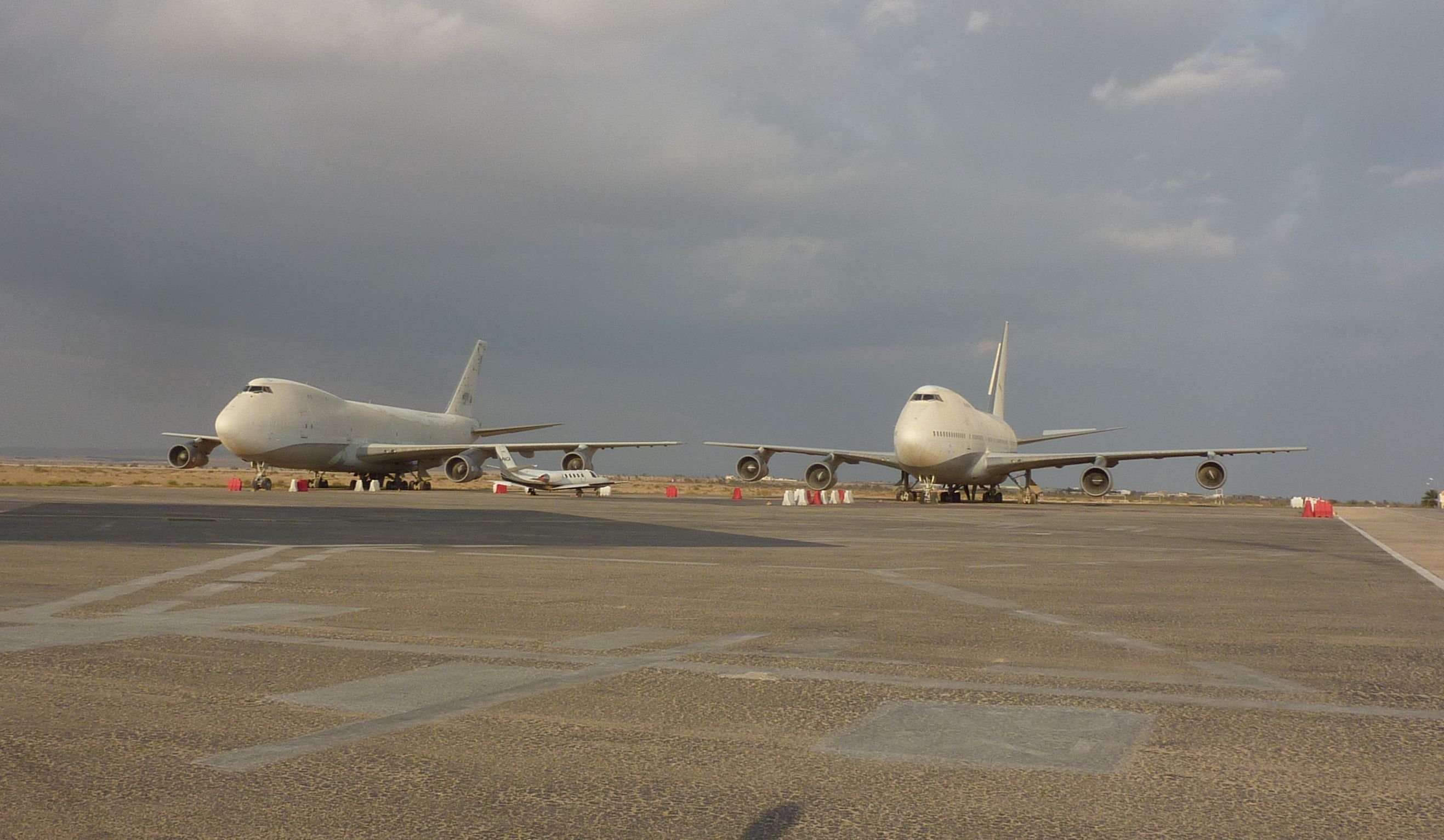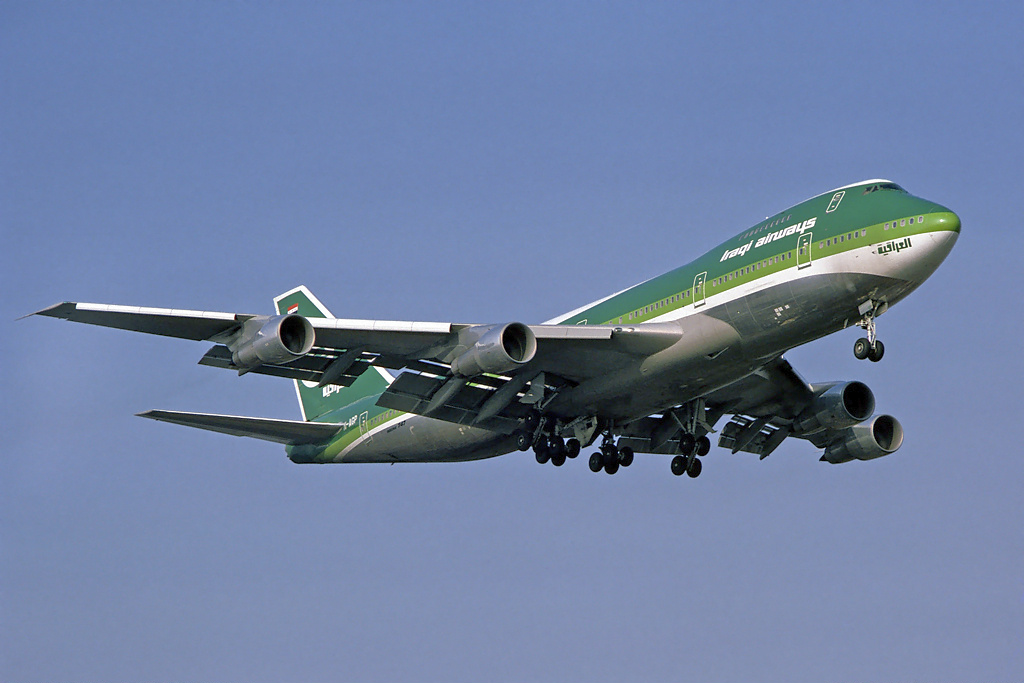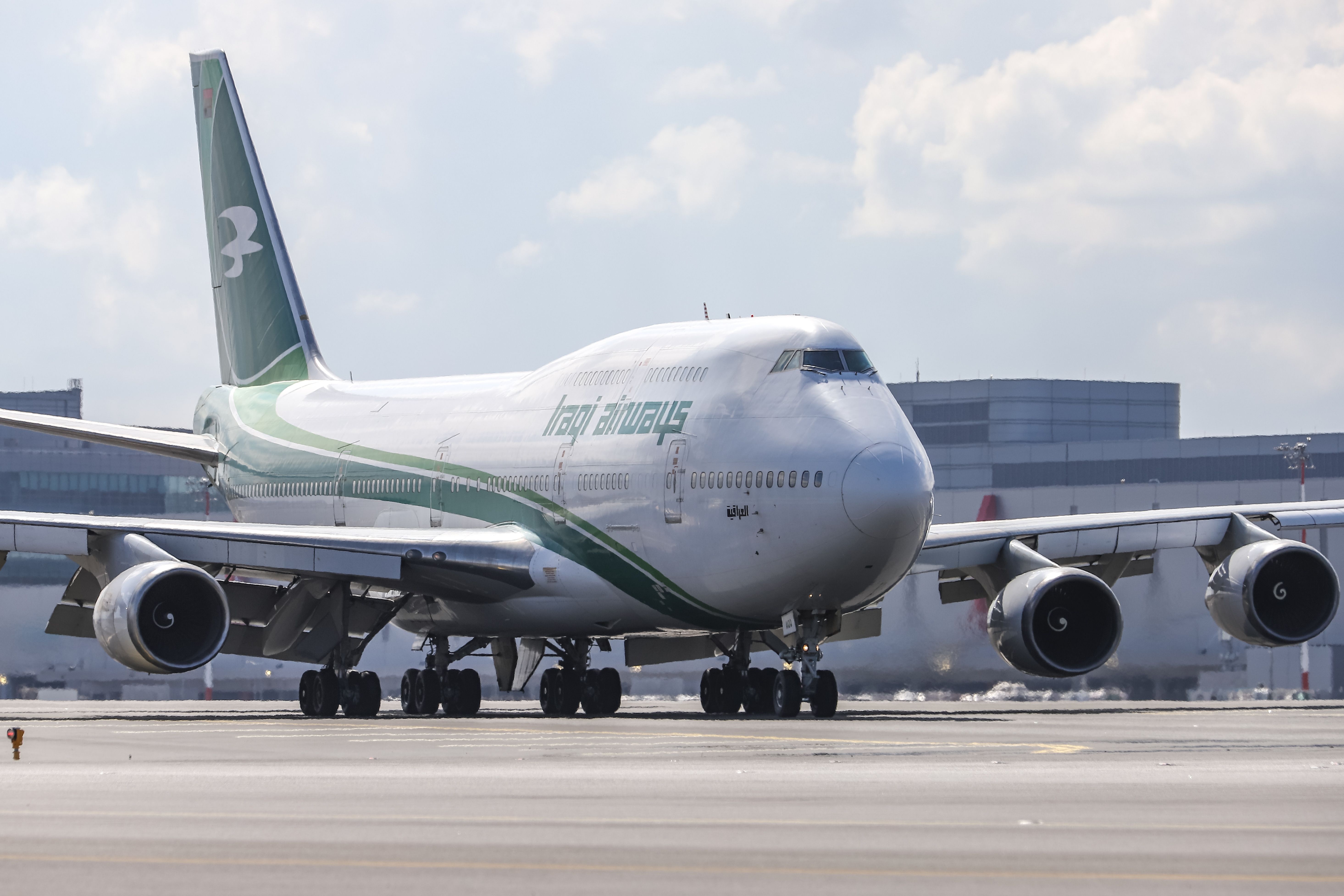Summary
- Iraqi Airways is auctioning off two Boeing 747s that have been parked at Tozeur-Nefta Airport in Tunisia since the end of the Gulf War.
- The planes, a Boeing 747-200CM and a B747SP-70, were part of Iraqi Airways' fleet and are not fit to fly.
- The initial bid for the planes is $494,000, and the successful bidder must conclude the transaction within seven days of the auction date on August 16.
Do you want to own a Boeing 747? This may be your opportunity as Iraqi Airways is set to auction a pair of ‘Queens of the Skies’ which have been parked at Tozeur-Nefta Airport in Tunisia since the Gulf War.
The auctioned 747s
As reported first by FlightGlobal, Iraqi Airways is putting up for auction two Boeing 747s which were employed by the airline decades ago. These planes were taken out of commercial activity in the aftermath of the Gulf War. One plane is Boeing 747-200CM and the other is a B747SP-70. Both were manufactured in 1982 and have Pratt & Whitney JT9D engines.
According to ch-aviation, the two jumbo aircraft, registrations YI-ALM and YI-AGP, were a part of Iraqi Airways’ fleet until 2001. They are not fit to fly, but retired aircraft are still very valuable. While some retired planes can be turned into hotels, restaurants, libraries, and more, most are scrapped, dismantled, and recycled.
The initial bid to acquire any of the planes is $494,000. Those interested in participating in the auction must deposit 20% of this amount to the Iraqi Ministry of Finance. The successful bidder must conclude the transaction within seven days of the auction date, which will take place on August 16.
A bit of history on the planes
Iraqi Airways was founded in 1945. During the 1970s, when the company was granted a route to JFK International Airport in New York, the company began acquiring Boeing-built widebodies. In 1976, it received its first Boeing 747.
According to ch-aviation, the company had three 747-200CMs in its history (registrations YI-AGN, YI-AGO, and YI-APG), three 747SPs (YI-AOX, YI-ALM, and 3D-GFD). Plus, it currently has two stored 747-400s (YI-AQQ and YI-ASA).
Looking at the planes that will be auctioned next month, the 747-200CM, registration YI-AGP, was received by Iraqi Airways in June 1982. The other one, a 747SP registration YI-ALM, was delivered in August 1982.
The Gulf War meant a complex period for Iraqi Airways. After Iraq’s invasion of Kuwait, Iraqi Airways was grounded by the United Nations sanctions against the country in 1991. The airline had 17 jets at the moment of the invasion, and it was forced to move its fleet to then secret locations, including Jordan, according to the airline’s history website.
What to do with the aircraft?
Whoever buys Iraqi Airways’ two 747s will have a question in mind: what to do with them. Dismantling them seems like the most logical option. Repurposing them could be quite fun, particularly considering the historical significance of these two aircraft and the circumstances surrounding their untimely retirement.
Here are some ideas on how to repurpose a 747 that have worked elsewhere:
- A former British Airways 747 was dismantled, and keyrings, bag tags, and other keepsakes were created from the remains.
- Perhaps the most famous repurposed retired 747 is the Jumbostay Hostel in Arlanda, Stockholm. The plane was made into a hotel with 33 rooms and 76 beds and became an obligatory visit for avgeeks all over the world.
- The Air Force One Experience created a replica of the US presidential jet employing a former Evergreen International Airlines 747-200F. The exhibition is permanently closed now, but it was a good experiment.
- The 747 plane that is used as a waterslide at the Evergreen Wings and Waves Waterpark in Oregon.
Would you like to own a 747? What would you do with the plane if you had one? Let us know your plans in the comments below.
Source: FlightGlobal, ch-aviation.
Get the latest aviation news straight to your inbox: Sign up for our newsletters today.



